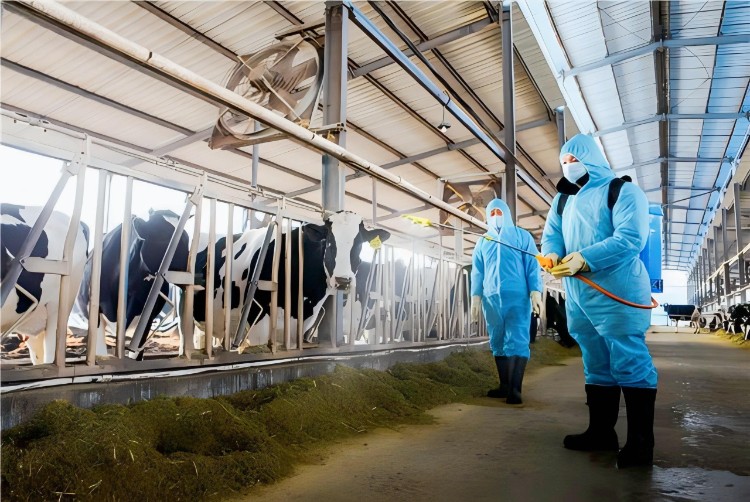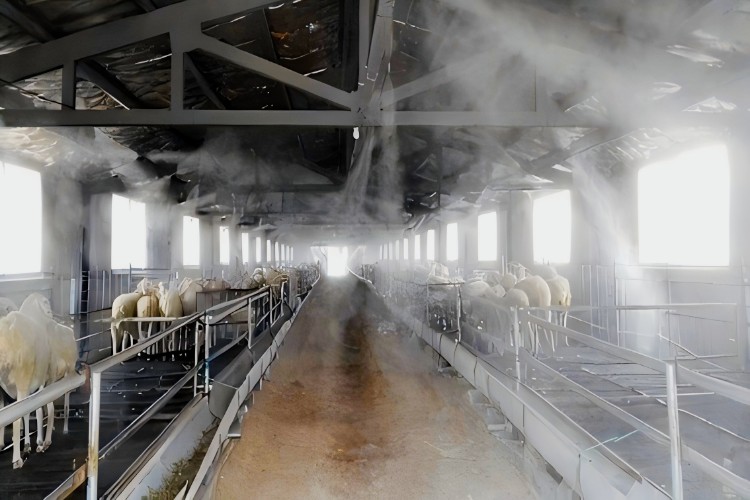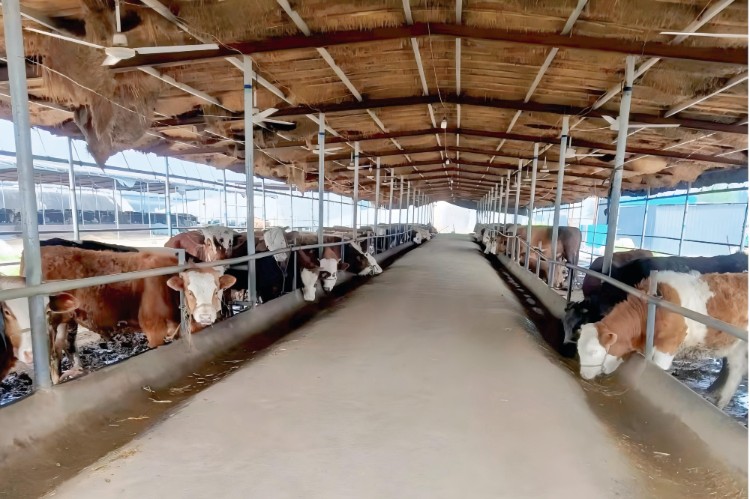HOCl Boosts Livestock Hygiene, Supports Health & Sustainability
Are you a farmer or an agricultural professional looking to enhance your livestock farming operations? If so, you’re probably aware of the challenges that come with raising animals. From feeding to housing, caring for your livestock can be both demanding and resource-intensive. That’s where hypochlorous acid generators come into play—a powerful tool that can make a world of difference in your farming operations.
This guide is your ultimate companion as we delve into the intricacies of hypochlorous acid generators tailored specifically for livestock farming. From understanding how these machines work to maximizing their benefits, this article will arm you with everything you need to know to elevate your farming endeavors. So, let’s dive in and explore why hypochlorous acid generators are a game-changer for your livestock farming operations!

The Basics of Hypochlorous Acid Generators
Hypochlorous acid (HOCl), commonly known as Slightly acidic redox potential water, is a potent disinfectant with a wide range of applications. While it’s often associated with marine and agricultural uses due to its antimicrobial properties, its application in livestock farming has only recently gained traction.
A hypochlorous acid generator is essentially a device designed to produce small-scale amounts of this powerful chemical. It’s perfect for scenarios where you need to generate chlorine-based solutions without the need for large industrial equipment. Whether you’re disinfecting feed, water, or surrounding areas, an HOCl generator can be your go-to solution.
Why Hypochlorous Acid is Essential in Livestock Farming
Livestock farming isn’t just about raising animals; it’s about ensuring their health and well-being. Cattle, sheep, goats, and dairy cows are among the most sensitive animals when it comes to health and hygiene. A small infection can lead to costly treatment and lower productivity. That’s where hypochlorous acid comes into play.
Disinfecting Feed and Water:
· Hypochlorous acid has a unique ability to kill germs and disinfect surfaces without leaving behind any residue. This makes it an ideal choice for disinfecting feed bins, troughs, and water troughs in your livestock farms. Clean feeding areas reduce the risk of disease transmission, ensuring healthier animals and happier farm environments.
Bleaching Feed:
· For some livestock, providing fresh, unbleached feed can be essential. Hypochlorous acid acts as a natural bleaching agent, removing impurities like dirt and bacteria from your feed. This ensures that your animals eat only hygienic food, reducing the risk of gastrointestinal issues and other health complications.
Sterilizing Cows and Sheep:
· Direct contact with hypochlorous acid can effectively kill bacteria on live cattle or sheep. This is particularly useful during calving season when cows are often exposed to harmful bacteria. By applying HOCl solutions directly, you can ensure a clean environment for your animals.
Protecting Against Pathogens and Parasites:
· Livestock farms are prone to infections from both external and internal sources. Hypochlorous acid generators can help protect against pathogens like E. coli, Salmonella, and roundworms. Additionally, it can tackle parasites such as lice, mites, and intestinal worms that commonly infest farm animals.
Maintaining Drinking Water Quality:
· Access to clean drinking water is crucial for the health of your livestock. Hypochlorous acid generators can disinfect water sources, ensuring that your animals have access to safe and potable water. This not only prevents diseases but also improves overall animal welfare.

Choosing the Right Hypochlorous Acid Generator for Your Farm
Selecting the appropriate hypochlorous acid generator is crucial for achieving maximum benefits in your farming operations. Here are some considerations to keep in mind:
Capacity:
· Determine the scale of your operation—whether you’re dealing with a small-scale dairy farm or a large-scale livestock ranch—when choosing a generator. Opt for one that can handle the volume of feed, water, and other liquids you need to process daily.
Power Source:
· Most hypochlorous acid generators are powered by electricity. Be sure to check the voltage requirement (220V or 380V) and make sure it matches the existing infrastructure on your farm.
Design and Durability:
· Ensure that the generator has a robust design suitable for outdoor use in harsh farming environments. Look for models built with durable materials, capable of withstanding frequent rain, humidity, and extreme temperatures without failing.
Maintenance and Safety:
· Regular maintenance is essential to keep your hypochlorous acid generator running smoothly. Also, prioritize safety—ensuring that all components are properly insulated and that you’re trained on safe usage practices.
Maximizing the Benefits of Hypochlorous Acid in Your Farm
Now that you’ve got a basic understanding of how hypochlorous acid works and its applications, it’s time to explore how you can integrate this technology into your farming operations:
Regular Cleaning Protocols:
· Incorporate regular disinfections using hypochlorous acid solutions as part of your feeding and water systems. This will help maintain a hygienic environment for your animals.
Optimal Solution Concentration:
· The concentration of the hypochlorous acid solution should be carefully calculated to avoid over-disinfecting your feed or water, which can impact animal health if done excessively. A balanced approach ensures that you kill harmful bacteria without harming your livestock.
Seasonal Maintenance:
· Just like any equipment, your hypochlorous acid generator may require seasonal maintenance during off-peak hours to ensure optimal performance during peak usage periods.
Training and Awareness:
· Your staff’s awareness of the importance of maintaining clean feed, water, and living environments will significantly impact your farm’s overall health and productivity. Educate them on proper hygiene practices and the role of hypochlorous acid in keeping your animals healthy.
Integration with Existing Systems:
· Work closely with your farming systems to integrate hypochlorous acid generation seamlessly. For instance, connect it with feed dispensers or water troughs to ensure a steady supply of clean solutions for disinfection and bleaching.

The Future of Hypochlorous Acid in Livestock Farming
As global demand for sustainable and eco-friendly farming practices grows, so does the role of hypochlorous acid generators in livestock farming. By providing a reliable source of chlorine-based solutions, these machines are poised to play an increasingly important role in helping farmers maintain optimal animal health while minimizing environmental impact.
In the coming years, advancements in generator technology will likely lead to more efficient and user-friendly solutions, making hypochlorous acid an indispensable tool for any modern livestock farmer.
Conclusion
Hypochlorous acid is a game-changer for livestock farming operations, offering countless benefits from disinfecting feed to protecting against diseases. A well-chosen hypochlorous acid generator can enhance the health and productivity of your animals while ensuring a cleaner, safer environment for both them and your farm.
Whether you’re managing a small-scale dairy operation or a large-scale livestock ranch, investing in a reliable hypochlorous acid generator is an investment in the future of your farming enterprise. By understanding how these generators work and integrating them into your operations effectively, you can elevate your farming practices to new heights.
So, take the first step towards a healthier, more productive farm by incorporating hypochlorous acid technology into your operations today!
